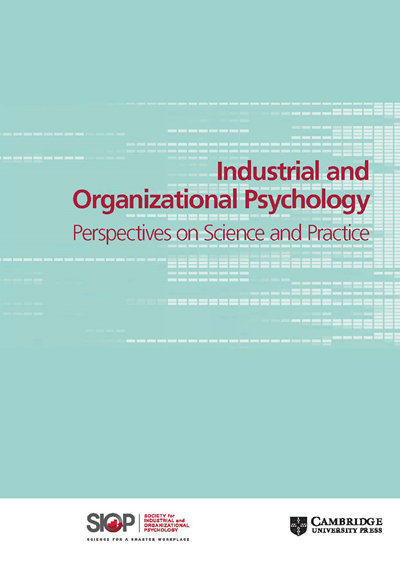(Conditionally) Supporting polycultural organizations through bidirectional allyship
IF 4.3
3区 心理学
Q1 PSYCHOLOGY, APPLIED
Industrial and Organizational Psychology-Perspectives on Science and Practice
Pub Date : 2023-08-31
DOI:10.1017/iop.2023.46
引用次数: 0
Abstract
Valenzuela and Bernardo ’ s (2023) focal article underscores the need to add polycultural ideology to existing diversity management perspectives in order to further enhance how organizations manage diversity. As the authors mention, despite an organization ’ s best efforts, reports across professional entities and policy institutes continue to indicate a prevalence of racial-ethnic discrimination and conflict within the workplace. To ease such challenges and improve intercultural relations within organizations, the authors outline the potential benefits of polyculturalism — which draws from a polycultural ideology that sees cultural values, traditions, and norms as fundamentally connected, dynamically intertwined, and ever-changing (Morris et al., 2015; Rosenthal & Levy, 2010). The authors offer examples of practice implications and strategies to create polycultural organizations (i.e., leadership, diversity training, and socialization). In this commentary, we highlight an additional strategy for creating a polycultural organization: bidirectional allyship.(有条件地)通过双向同盟支持多元文化组织
Valenzuela和Bernardo(2023)的重点文章强调需要将多元文化意识形态添加到现有的多样性管理观点中,以进一步增强组织管理多样性的方式。正如作者所提到的,尽管一个组织尽了最大的努力,专业实体和政策机构的报告仍然表明,工作场所内种族-民族歧视和冲突普遍存在。为了缓解这些挑战并改善组织内的跨文化关系,作者概述了多元文化主义的潜在好处——多元文化主义源于一种多元文化意识形态,认为文化价值观、传统和规范从根本上联系在一起,动态地交织在一起,并且不断变化(Morris et al., 2015;Rosenthal & Levy, 2010)。作者提供了创建多元文化组织(即领导力、多样性培训和社会化)的实践意义和策略的例子。在这篇评论中,我们强调了创建多元文化组织的另一个策略:双向盟友关系。
本文章由计算机程序翻译,如有差异,请以英文原文为准。
求助全文
约1分钟内获得全文
求助全文
来源期刊

Industrial and Organizational Psychology-Perspectives on Science and Practice
PSYCHOLOGY, APPLIED-
CiteScore
7.70
自引率
10.10%
发文量
85
期刊介绍:
Industrial and Organizational Psychology-Perspectives on Science and Practice is a peer-reviewed academic journal published on behalf of the Society for Industrial and Organizational Psychology. The journal focuses on interactive exchanges on topics of importance to the science and practice of the field. It features articles that present new ideas or different takes on existing ideas, stimulating dialogue about important issues in the field. Additionally, the journal is indexed and abstracted in Clarivate Analytics SSCI, Clarivate Analytics Web of Science, European Reference Index for the Humanities and Social Sciences (ERIH PLUS), ProQuest, PsycINFO, and Scopus.
 求助内容:
求助内容: 应助结果提醒方式:
应助结果提醒方式:


